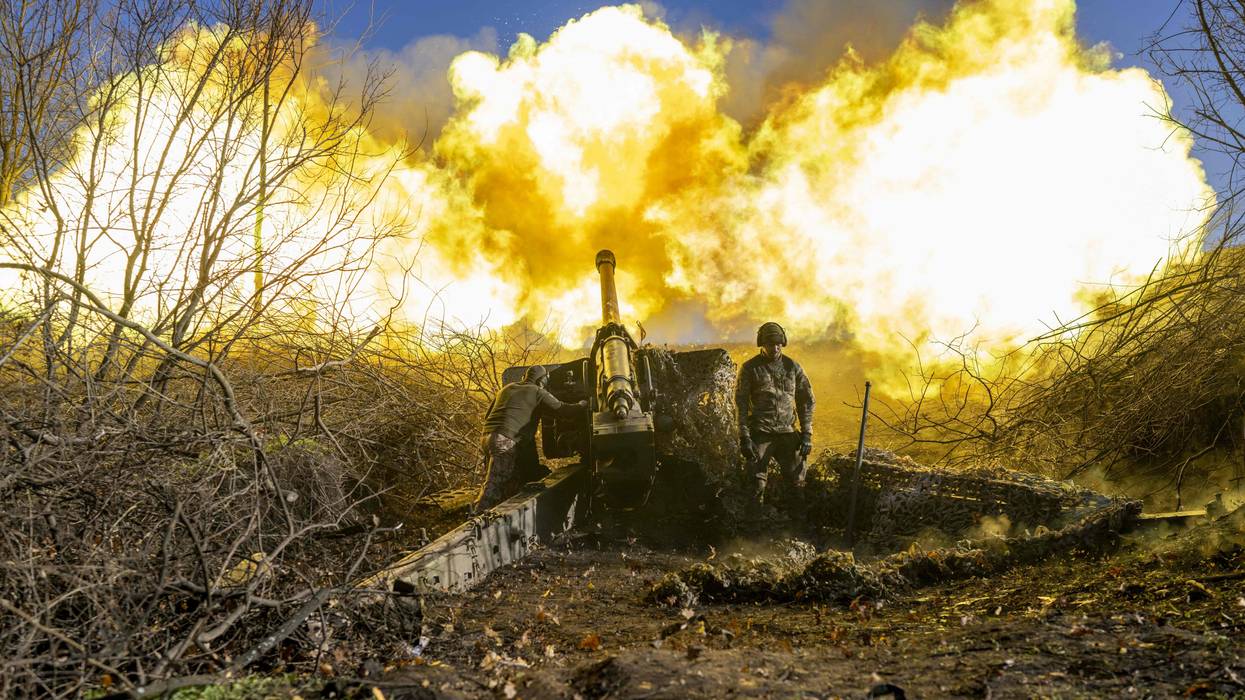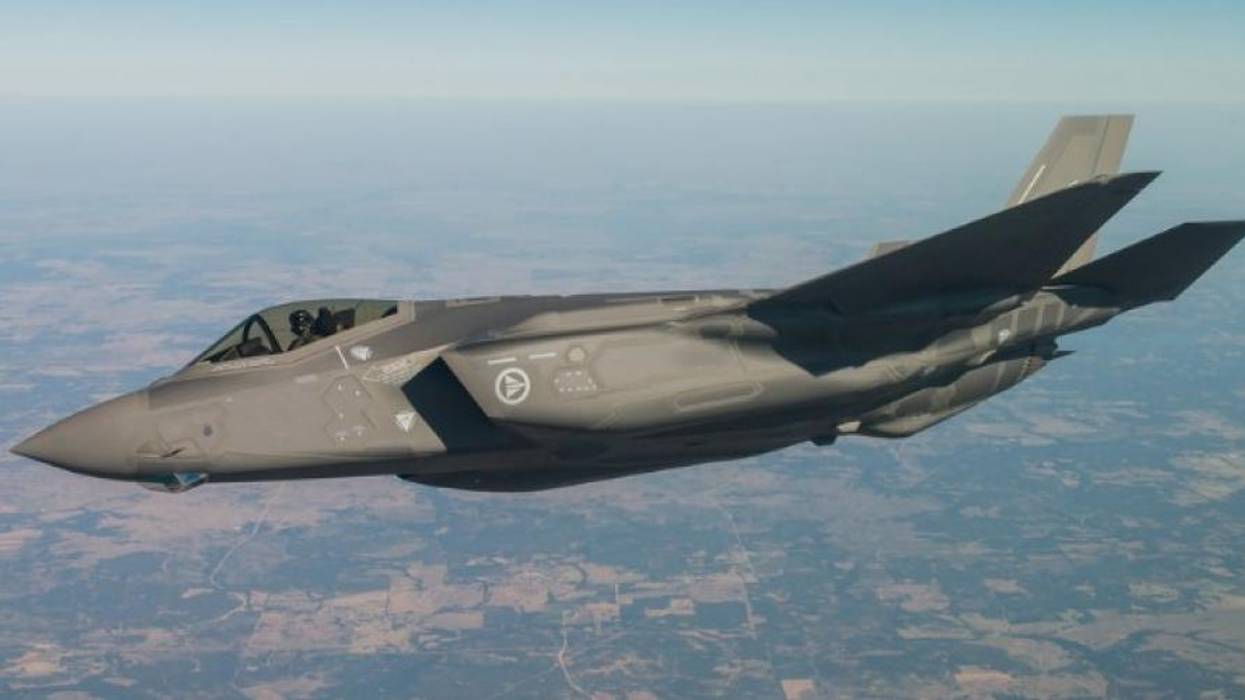Pushing for Regime Change in Russia Implies an Embrace of Endless War in Ukraine
It goes without saying that Russia's invasion of Ukraine is wrong, violates the UN Charter, and cannot be justified under international law. Yet still we must ask: where is the path towards ending this conflict and the horrors being faced by Ukrainians?
Is it Russian imperialism or great-power politics that explains Putin’s invasion of Ukraine? And how likely is it that we could see regime change in Moscow? Moreover, do ideological labels matter in today’s political climate? C. J. Polychroniou tackles these questions in an interview with the French-Greek journalist Alexandra Boutri. He contends that Russia’s invasion of Ukraine is a major war crime but that the ongoing war is rooted in NATO’s eastward expansion and associated with the game of great-power politics. As for those who compare Putin to Hitler and call for regime change in Russia, Polychroniou argues that such claims and demands are both absurd and dangerous.
Alexandra Boutri: Let me start by asking you to share with me your views about an international relations topic that has dominated headlines for the past year, namely, the Russia-Ukraine war. Does it have its roots on Russian imperialistic aggression, which is the general view among most mainstream pundits, including many on the Left, or is it something more complicated than that?
C. J. Polychroniou: I think the best way to address your question is by putting this unnecessary tragedy, which, incidentally, could very well drag on for years to come, in historical context and thus realizing how easily it could have been avoided. Indeed, Putin’s decision to launch a full-scale invasion of Ukraine on February 24, 2022, may have taken everyone by surprise but the seeds of this war had been sown long before. Now, Ukrainians tend to emphasize Russia’s seizure of Crimea in 2014 as the origin of the conflict between the two countries. This is not an accurate description because the great-power rivalry between the United States and Russia is left out of the equation.
But let’s start with Crimea. For whatever reason, Crimea was gifted from Soviet Russia to Soviet Ukraine in 1954. Interestingly enough, the overwhelming majority of the population of Crimea in the 1950s was ethnic Russian and there was still an ethnic Russian majority of over 60 percent in 2014. It should also be pointed out that the Crimean Peninsula has always been a strategically vital location on the Black Sea. Indeed, Crimea’s position in the Black Sea holds such strategic importance that Zbigniew Brzezinski, the hawkish national security adviser to President Jimmy Carter, made strong hints in a 1997 book titled The Grand Chessboard that the Crimean Peninsula could become a major source of instability in the territories of the former Soviet Union. Putting aside for now the legality of the Russian operation to annex Crimea, what is often ignored in the Ukrainian and western narrative is that it took place in the aftermath of NATO’s enlargement following the collapse of the Soviet Union. And it wasn’t just Putin who was wary of NATO’s eastward expansion. Gorbachev was also suspicious of the perpetuation of NATO following the end of the Cold War while Boris Yeltsin, in a letter sent to President Clinton in 1993, had strongly opposed NATO’s expansion to the east.
It seems appropriate here to recall that Putin did not mince words when it came to giving his opinion about the eastward expansion of NATO at the Security Conference in Munich on February 2007:
I think it is obvious that NATO expansion does not have any relation with the modernisation of the Alliance itself or with ensuring security in Europe. On the contrary, it represents a serious provocation that reduces the level of mutual trust. And we have the right to ask: against whom is this expansion intended? And what happened to the assurances our western partners made after the dissolution of the Warsaw Pact? Where are those declarations today? No one even remembers them. But I will allow myself to remind this audience what was said. I would like to quote the speech of NATO General Secretary Mr Woerner in Brussels on 17 May 1990. He said at the time that: "the fact that we are ready not to place a NATO army outside of German territory gives the Soviet Union a firm security guarantee." Where are these guarantees?
Each round of NATO expansion since the fall of the Berlin Wall (NATO grew from 16 countries at the peak of the Cold War to 30 today, several of which were part of the Warsaw Pact) was followed by loud complaints from Russia that such moves posed a threat to Russia’s national security. Moreover, the prospect of Georgia and Ukraine becoming members of the trans-Atlantic military alliance constituted a red line for Moscow. Yet pledges were made by NATO leaders at the Budapest Summit in April 2008 that Georgia and Ukraine would eventually become NATO member states. In fact, relations between NATO and Ukraine go back to the early 1990s and, after 2014, the level of military cooperation between the two intensified in critical areas.
From the perspective of the Kremlin, what NATO (i.e., the US) was up to amounted to an “encirclement” of Russia. Indeed, it shouldn’t be difficult to understand why Russian leaders felt this way, and there is no doubt that US officials knew all along that they were crossing Russia’s red lines on NATO expansion.
In this context, Russia’s invasion of the territories of South Ossetia and Abkhazia in Georgia in 2008, Crimea’s annexation in 2014, and the disastrous invasion of Ukraine in 2022 are all part of the game of great-power politics and have little to do with Putin’s alleged push for a new Russian empire.
Alexandra Boutri: So, according to the analysis you just provided, the idea that Putin might want to invade countries in Europe is utter hogwash. But what about the suggestion that Putin is a tyrant, this generation’s Adolf Hitler, and therefore his regime must be overthrown?
So, when pundits and experts alike in the US and elsewhere speak of regime change in Russia, one really wonders what they may have in mind. Is regime change going to come from the inside, through a coup or revolution, or from the outside, through a foreign invasion? The security forces, which are the core and backbone of Putin’s regime, answer directly to Putin and they will surely protect him from any possible coup. On the other hand, his popularity is so great that simply precludes the possibility that he can be overthrown by his own people. A foreign invasion of Russia to overthrow Putin’s regime is sheer madness and totally out of the question, so all this talk about regime change in Moscow amounts to nothing more than dangerous political posturing. Why so? Because regime change seekers suspect, and they are probably right, that the most likely scenario for Putin to be removed from power is through the weakening of Russia. This means either Putin losing the war in Ukraine or witnessing the collapse of his own economy. In either case, achieving the goal of Putin’s removal from power mandates an indefinite continuation of the war regardless of what happens to Ukraine itself. But even so, what guarantee is there that Putin won’t be replaced by someone even more ruthless? A weakened and humiliated Russia will most likely lead to the emergence of an even more ruthless leader. After all, it was the economic collapse and humiliation of the 1990s that made Putin such a popular figure with the Russian people.
Today, more than any other time in recent history, the traditional political terms “left” and “right” have become a bit redundant, though I am not suggesting by any stretch of the imagination of doing away with the distinction. But consider this: Some of today’s conservative governments in Europe are pursuing policies, such as trying to tame the market and using the state to support vulnerable populations, that are hardly representative of neoliberalism or even traditional conservatism. Greece and Poland come to mind, both countries governed by right-wing political parties. By the same token, so-called “left” parties have moved ever so closer to the right, pursuing even neoliberal policies when they are in power, to the point that blue collar workers have switched allegiances. And the Green parties of today bear no resemblance whatsoever to the Green Movement of the seventies. The German Green party, for instance, is now advocating for stronger U.S. militarism.
In the United States, of course, the situation is in some ways quite different. The Republican Party has moved so far to the right that it has developed a serious extremism problem while the Democratic Party has drifted towards its progressive faction. However, both “left” and “right” in the US are involved in a growing “culture war” and both practice cancel culture. The mania over political correctness and identity politics, which are the last things that the Left should be embracing given its historical commitment to free speech and universality, is terrible business. It is in fact helping today to give shape and form to the reactionary politics and policies of Ron DeSantis, the rising star of America’s hard- right.

